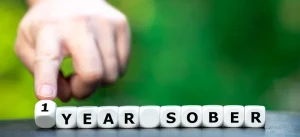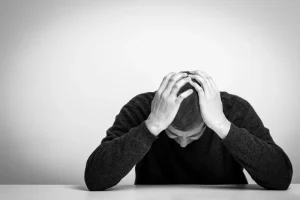
It can also keep you accountable and reduce any feelings of shame or grief that you may be experiencing after a relapse. A slip may feel like the end of the world, but really, it’s an opportunity for growth and reinforcing basic life skills that need more work. Many people emerge from relapse with a https://ecosoberhouse.com/ fresh scare regarding what they are up against, as well as a deeper commitment to becoming sober. This renewed motivation can help you come back from a relapse even stronger than you were before. Prepare yourself for a difficult conversation; admitting you slipped up will be difficult and humbling.
How to Prevent a Relapse
- Surrounding yourself with people who encourage your sobriety and respect your journey is essential.
- When it comes to addiction, it refers to a person engaging in addictive behavior after a period of abstinence.
- When it comes to it, if you want to live a safe and sober life, you must act, and act now.
- Conversely, a relapse often requires a more intensive intervention to get back on track, which may include revisiting treatment options or adjusting the recovery strategy.
It’s paved with challenges, but opportunities for growth and resilience accompany each. You can also contact us to talk to one of our recovery coaches. If you or a loved one are in need of help with addiction, contact us today. Our professional and friendly addiction specialists are able to answer your questions and get things moving in the right direction. It’s also important to make sure we are getting enough sleep, eating healthily, and paying attention to our emotions.
Combination treatment extends survival in locally advanced bladder cancer
Being open and honest about your recovery allows friends, family members and co-workers to support you when you need it. Including others in a relapse prevention plan can help the plan succeed. People who attend therapy learn skills and strategies for preventing relapse.
The “High-Risk Situation”: Relapse Triggers
- Learning various acronyms can help a person identify when they need to improve their self-care, such as HALT (Hungry, Angry, Lonely, Tired).
- But the truth is, it’s just a natural part of the recovery process.
- No matter how much abstinence is the desired goal, viewing any substance use at all as a relapse can actually increase the likelihood of future substance use.
- Off-label drugs like topiramate and gabapentin are also used to support recovery goals, especially in individuals who do not respond well to first-line treatments.
The general meaning of relapse is a deterioration in health status after an improvement. In the realm of addiction, relapse has a more specific meaning—a return to substance use after a period of nonuse. Whether it lasts a week, a month, or years, relapse is common enough in addiction recovery that it is considered a natural part of the difficult process of change. what to do after a relapse Between 40 percent and 60 percent of individuals relapse within their first year of treatment, according to the National Institute on Drug Abuse. Relapse in addiction is of particular concern because it poses the risk of overdose if someone uses as much of the substance as they did before quitting. Having a strong support network is vital to addiction recovery.
What to Do After a Relapse: 10 Steps to Get You Back on Track

For more than 20 years, the standard of care for advanced bladder cancer (stages II to III) involved chemotherapy followed by radical cystectomy (surgical removal of the bladder and surrounding lymph nodes). However, approximately half of patients experience recurrence within three years after treatment. Physical relapse may be one drink or drug or could be the sustained use of substances over a period of time. During a mental relapse, you might start experiencing cravings or think of previous use positively. But the truth is, it’s just a natural part of the recovery process. Withdrawal symptoms like nausea, shakiness, and sweating can be so difficult that you want to use drugs again just to stop them.

How to Recover from Relapse

Get Help With Alcohol Addiction

Comentarios recientes